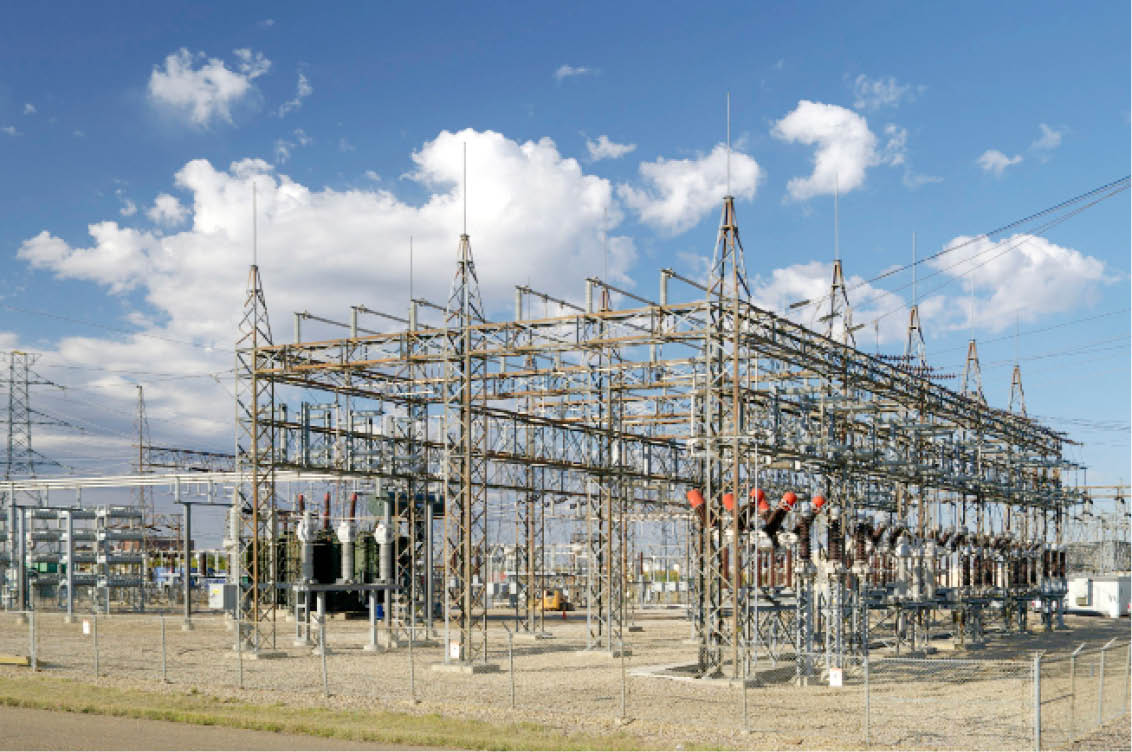Electricity plays a central, critical and vital role as an input to social, economic, industrial and technological development of the country. Put simply, electricity is the lifeblood of the economy and the nation and is key to our security and prosperity.
But electricity generation and supply in Nigeria is in a sorry state not so much because of doubts about the resources the power sector commands, but because it is disorganized. The result is a waste of resources, a failure of coordination, complacency, indiscipline, corruption and lack of effective leadership and the inevitable neglect of national interest, because of diverse unmanaged interests. Without this coalescing of culture and respect for professional views on how to tackle the power problem in the country, the history of the power sector since the advent of democracy would have been a much success story.
So, the obvious question is, “what must be done differently by the Buhari government from what was done before to fix electricity in the Next Level?”
As a starting point we should first understand what the actual problem is in the power sector to be able to devise an appropriate solution to the problem.
The problem of electricity in Nigeria can be basically defined as “the inability of the power sector to establish and maintain reliable power supply of electricity, even though the installed generation capacity as at today is 8,876MW which is a multiple of that needed to serve actual peak demand which is 2470MW”.
This policy advice document provides detailed answer on how to fix electricity and develop the power sector in the Next Level. It sets out what should be done to achieve these high standards necessary to provide the country with reliable, constant, regular, steady, uninterrupted electricity supply so vital to the wealth creation in industry in general and to comfortable homes and more economic activities in particular.
It is vitally important that the power sector establishes and maintains high quality services to provide reliable electricity supply at all times. It must achieve this aim if the country is to support socio-econo-industrial and technological development, especially the diversification of the economy, industrial expansion and economic growth in the face of the present economic quagmire, dwindling oil revenue and high unemployment.
The present methods of managing the badly privatized power sector do not ensure that resources are judiciously managed to enable required reliable electricity to be fully met. Indeed recent history suggests that until and unless drastic measures such as reversing the premature privatization of the GENCOs and DISCOs are done in order to mould them into proper organizations, with appropriate organization conditions, and effective policies at their core, are put in place, depredations to power plants, transmission lines, distributions network, machinery, equipment, etc. will continue.
Accordingly, conscious of the importance of the electricity industry to the socio-econo-industrial and technological development of the nation, I believe that only by acting decisively by reversing the shoddy privatization of the GENCOs and DISCOs and taking them back into state ownership and permit them to run on full commercial lines for a period of time, say two to five years, before they would be offered back for full privatization at a later date. This will allow them to lay a firm foundation for the future and reshape them anew and build a clean balance sheet as well as to re-direct the privatization process, which was flawed by lack of transparency, many anomalies and corruption. This will permit a level playing field to all investors, especially foreign core investors who will bring the much needed technical and managerial expertise as well as financial resources to grow the industry.
Full commercialization means the power industry will fend for itself. It is no longer to be subsidized by the government, but will instead be required to make profit and contribute to the government that owns it. Certainly, this is the best way out of the dilemma the country finds itself with its electricity industry. I must stress that the idea of a state-owned, fully commercialized electricity industry is not new; other countries such as France, New Zealand, Brazil, etc. have successful state-owned utilities. It could be here!
In summary: Agenda
– The proposal for change in the power sector includes the reversing of the shoddy privatization of the GENCOs and DISCOs in order to correct the anomalies in the privatization and mould the sector anew, as a commercial entity, with appropriate organization variables and policies such as strategy, structure, systems, staff, skills, and shared values which are necessary for efficient and effective running of the power industry to provide regular and cheap electricity to consumers 24/7 nationwide. This improvement could lead to cost reduction through effective management systems, such as materials management, maintenance management and so on.
– Thus the new commercialized power sector, the 18 electricity companies (originally carved-out of the defunct NEPA) should have a board of directors, which should be constituted with a lean and dynamic management team, composed of technocrats to be appointed for the day-to-day running of the industry, under a Group Managing Director and Chief Executive, with the 18 subsidiary companies, each having a Chief Operating Officer.
– The new commercialized power sector should be self-supporting. It is recognized that this implies:
(a) That it should be fully commercialized “to generate, transmit and distribute reliable electricity, efficiently and effectively, sell at economic rate to all consumers”
(b) The Federal Government should provide take-off grant or loan to the sector due to the greater expense of meeting the initial cost of new power plants construction, completion of the uncompleted projects and programmes etc. necessary to re-launch the sector on a sound commercial footing.
(c) The Group Board should be given the necessary authority to run the industry, without the day-to-day ministerial control of their activities. This would make it easier to handle procurement of essential materials, spare parts, and other supplies required. It should be borne in mind that an industry like the power sector cannot sustain the harms done to it by government red-tapism (a steady handicap created by government rules and regulations). Thus the Group Board would have all the requisite powers to handle the problems that may crop up from time-to-time, effectively and decisively.
(d) The power industry should be made economically self-sufficient, that is the rates and charges of their services to the general public shall be such as to achieve an overall cover of expenses. It must be ensured that the legal and regulatory framework should not be onerous as to stifle its future development. In this respective, price control of its tariff charges rather than direct control of profits will give it opportunity to improve its revenue from efficiency and enterprise gains. It has to prop-up the weak balance sheet it has built up over the years not to encumber it by additional debt.
(e) Emphasis is placed upon the encouragement of the “18 electricity companies” to undertake other work for money to supplement their revenues. Put simply, the 18 companies should expand their businesses to develop those areas such as electrical components manufacture and repairs where there is synergy, with their core business. They may also pursue ventures in retail activities.
(f) The government should free the power sector from debt burden by writing off the losses to the Minister of Finance. But should control the industry by requiring it to publish its accounts for scrutiny. And the Minister of Power should exercise general control of policy.
(g) Public enlightenment campaign should be immediately embarked upon to make the general public aware of the tremendous benefits that may accrue to the country through reversing the shoddy privatization and running the sector as a commercial undertaking for a period of time, before future privatization.
(h) The Nigerian Electricity Regulatory Commission (NERC) should be reorganized to supervise the 18 electricity companies and the IPPs and also to set standards for electricity business in the country as advocated above. The regulatory commission should be totally independent of political influence and report factually and objectively to the nation annually. This would make tremendous contributions to good governance by ensuring that government and the nation are properly and impartially advised of electricity business needs and priorities in Nigeria; and above all to develop transparent regulatory framework.
(i) The Niger Delta Power Holding Company (NDPHC) and the NIPP should be scrapped, because they are nothing more than conduit pipes for siphoning public funds, (and their staff to be redeployed to other organizations in the power sector); and the Board of Rural Electrification Agency should be reorganized to ensure more effective checks and accountability on the agency to benefit from earmarked funds and to ensure that resources are used to maximum advantage to meet targets for rural electrification, which has impact on poverty reduction and check on rural and urban drift.
CONCLUSION
The main reason of this write-up, policy advice, is to show that the power sector is capable of self-supporting, capable of providing reliable power supply 24/7 at the current installed generation capacity (8,876MW) and capable of giving cheap electricity, given the correct atmosphere that permits its development. And it will eventually attract a wide range of investors as a good portfolio to invest, if the above measures are put in place.
In the long-term, when the above objectives are achieved, the 6 GENCOs and 11 DISCOs should be offered for full privatization, while the TRANSCO should remain in state ownership.
Government policy will be directed to bring about conditions favourable to the provision of reliable electricity…. but the success of the policy…. will ultimately depend on the understanding and support of the society as a whole and especially on the efforts of employees of the power sector. It is recognized that this implies greater participation of indigenous ventures in the power sector through developing and enhancing indigenous capacity in electric power technology, with its multiplier effects and generation of employment opportunities the country desperately needs. For, without good electricity industry, we cannot achieve prosperity and security.
Indeed Mr. President’s long-term objectives of turning-around the power sector for rapid development will stand the best chance of fulfillment if short-term changes advocated above are brought about now, in order to create a financially viable and sustainable electricity business environment.
I do not dispute that the introduction of these changes will be a difficult process. I have considered whether they would stifle progress. I believe not. On the contrary, I believe that unless government pays serious and very urgent attention to these matters, the power sector will collapse with serious consequences on the social, economic, industrial and technological development of the country.
I stress that unless stable electricity is available, all other financial measures to promote growth will be ineffective. It is to these crucial national issues that this policy advice is addressed.
Dr. Buba Ing. P. Eur is a Chartered Engineer and Former Policy Adviser/Analyst to the President of the Federal Republic of Nigeria and a Member of the Presidential Think Tank IPG (Former Consultative Group on Nigeria).

 Join Daily Trust WhatsApp Community For Quick Access To News and Happenings Around You.
Join Daily Trust WhatsApp Community For Quick Access To News and Happenings Around You.

